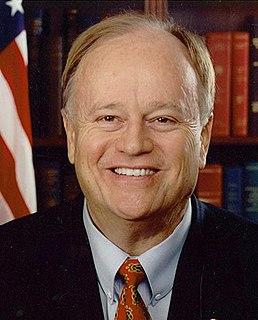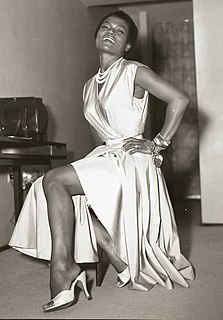A Quote by Harris Faulkner
My father, a Vietnam War pilot, used to tell me that the only really bad decisions are the ones you stick to even when you get facts that support a change in the mission.
Related Quotes
With 450,000 U. S. troops now in Vietnam, it is time that Congress decided whether or not to declare a state of war exists with North Vietnam. Previous congressional resolutions of support provide only limited authority. Although Congress may decide that the previously approved resolution on Vietnam given President Johnson is sufficient, the issue of a declaration of war should at least be put before the Congress for decision.
Yes and no. Because America has only about 1 percent of the population serving in the military, it is hard for many civilians to understand the sacrifices military families make. However, my experience is that after the Vietnam War, the public learned that they should support the military whether or not they support the war. You've seen that outpouring of support for the veterans of both Iraq and Afghanistan.
[The scientist] believes passionately in facts, in measured facts. He believes there are no bad facts, that all facts are good facts, though they may be facts about bad things, and his intellectual satisfaction can come only from the acquisition of accurately known facts, from their organization into a body of knowledge, in which the inter-relationship of the measured facts is the dominant consideration.
In every major war we have fought in the 19th and 20th centuries. Americans have been asked to pay higher taxes - and nonessential programs have been cut - to support the military effort. Yet during this Iraq war, taxes have been lowered and domestic spending has climbed. In contrast to World War I, World War II, the Korean War and Vietnam, for most Americans this conflict has entailed no economic sacrifice. The only people really sacrificing for this war are the troops and their families.
I couldn't really tell if it was a different childhood because I was used to it, it was kind of normal to me. The only time I remember it felt a bit odd was when I went to other people's houses and they were calling people 'dad.' I wouldn't get that. But my uncle, who also lived with me, was a father figure.
Most of us who were opposed to the war, especially in the early '60's - the war we were opposed to was the war on South Vietnam which destroyed South Vietnam's rural society. The South was devastated. But now anyone who opposed this atrocity is regarded as having defended North Vietnam. And that's part of the effort to present the war as if it were a war between South Vietnam and North Vietnam with the United States helping the South. Of course it's fabrication. But it's "official truth" now.
What are the facts? Again and again and again – what are the facts? Shun wishful thinking, ignore divine revelation, forget what “the stars foretell,” avoid opinion, care not what the neighbors think, never mind the unguessable “verdict of history” – what are the facts, and to how many decimal places? You pilot always into an unknown future; facts are your single clue. Get the facts!
I wanted to tell them that, in Kabul, we snapped a tree branch and used it as a credit card. Hassan and I would take the wooden stick to the bread maker. He'd carve notches on our stick with his knife, one notch for each loaf of naan he'd pull for us from the tandoor's roaring flames. At the end of the month, my father paid him for the number of notches on the stick. That was it. No questions. No ID.
I think that the war on drugs is domestic Vietnam. And didn't we learn from Vietnam that, at a certain point in the war, we should stop and rethink our strategy, ask ``Why are we here, what are we doing, what's succeeded, what's failed?'' And we ought to do that with the domestic Vietnam, which is the war on drugs.

































